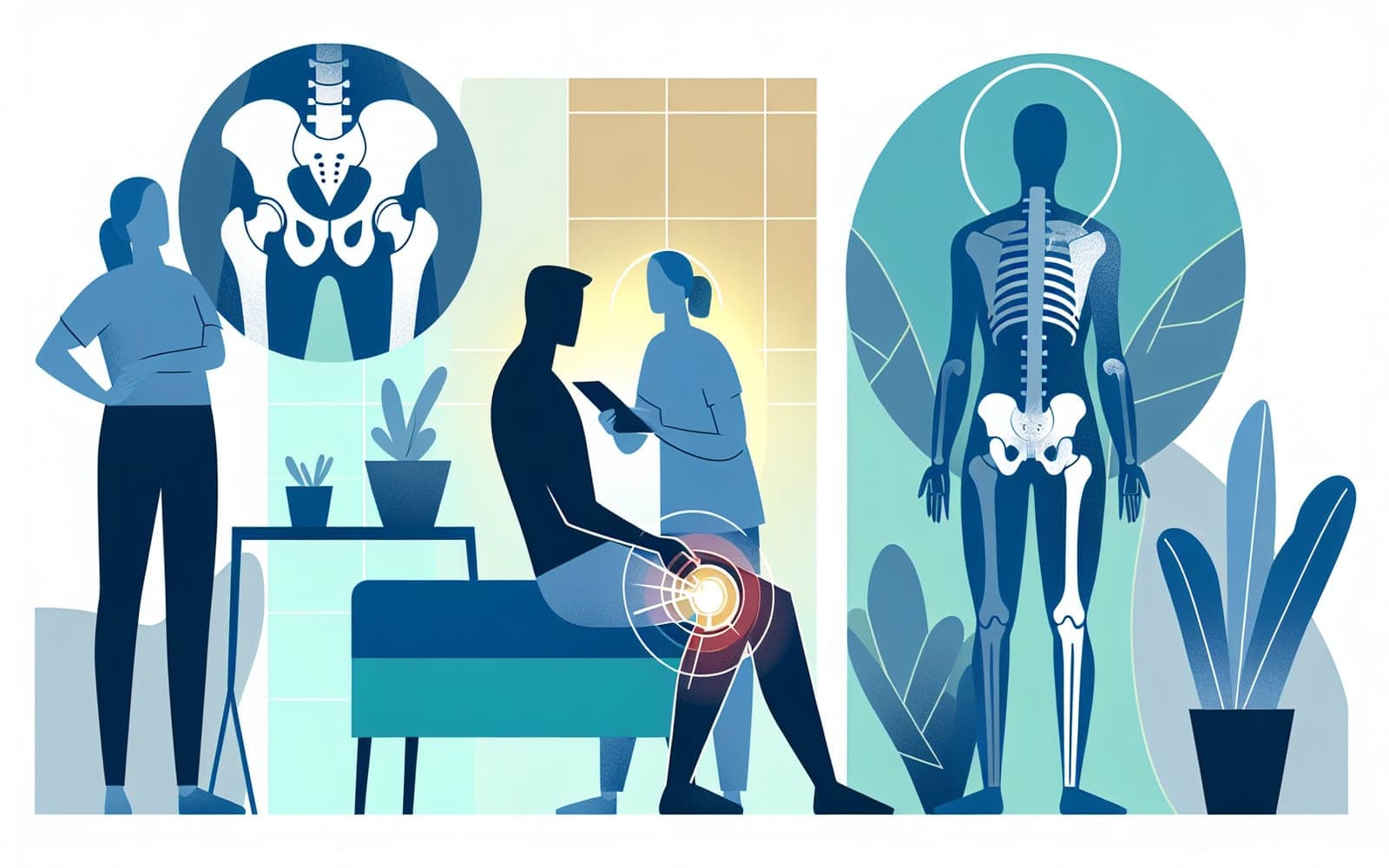Treating Hip Adductor Injuries: From Rest to Recovery
Published: Apr 15, 2024
Hip adductor injuries can be painful and frustrating, but with proper treatment, most people make a full recovery. The approach to treatment depends on the severity of the injury and may range from simple rest to surgery in rare cases.
Contents
Immediate Care: POLICE
The first step in treating an adductor injury is following the POLICE protocol: Protection, Optimal Loading, Ice, Compression, and Elevation. This helps manage pain and swelling in the first 48-72 hours. Crutches may be needed for severe injuries to avoid putting weight on the affected leg.
Rehabilitation Exercises
Once the acute pain subsides, rehabilitation exercises are crucial for recovery. These typically start with gentle stretching and isometric exercises, progressing to strength training and sport-specific movements. A physical therapist can guide you through an appropriate exercise program tailored to your injury and goals.

Additional Treatments
Various other treatments may be used depending on the injury. These can include massage, ultrasound therapy, and electrical stimulation to promote healing. In some cases, doctors may recommend platelet-rich plasma (PRP) injections to accelerate tissue repair, though evidence for this is still limited.
Frequently Asked Questions
Mild strains may heal in 1-2 weeks, while severe tears can take 2-3 months or longer.
Light, pain-free exercise may be OK, but always consult your doctor or physical therapist first.
Sometimes, but they're typically not first-line treatment due to potential side effects.
Compression shorts or a groin wrap may help, but rigid braces are rarely used.
Key Takeaways
With patience and proper care, most people with adductor injuries can return to their previous level of activity.
Wondering about the best treatment for your groin injury? Consult with Doctronic to develop a personalized recovery plan.Related Articles
References
Holmich P, Bradshaw C. Groin Pain. In: Clinical Sports Medicine, Brukner P, Khan K (Eds), McGraw-Hill, Australia 2013. p.549.
Serner A, Weir A, Tol JL, et al. Return to Sport After Criteria-Based Rehabilitation of Acute Adductor Injuries in Male Athletes: A Prospective Cohort Study. Orthop J Sports Med 2020; 8:2325967119897247.
Always discuss health information with your healthcare provider.

